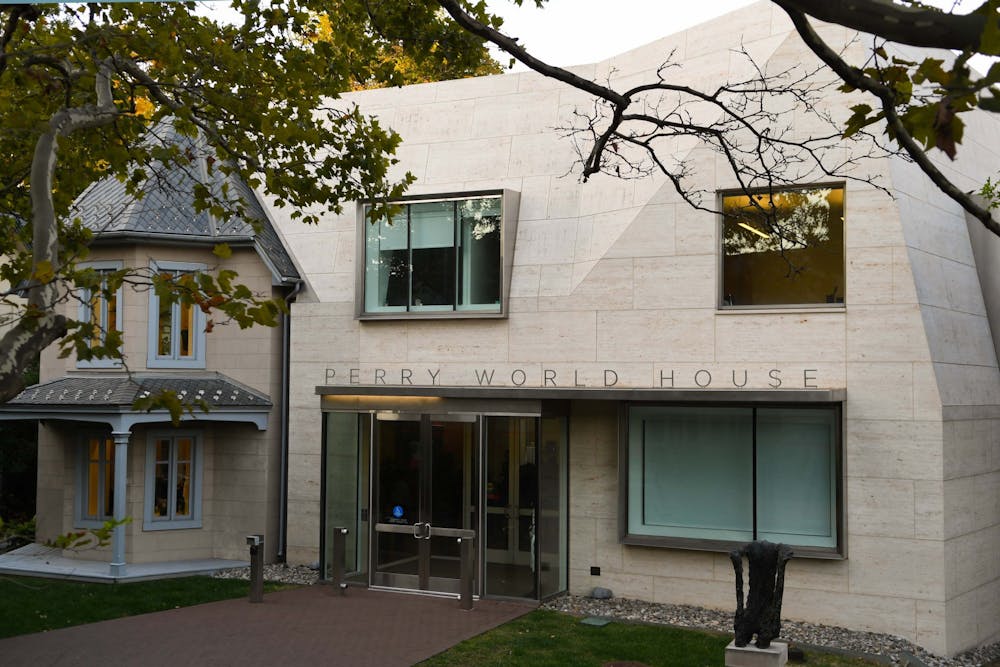
Two Penn professors and a Perry World House Visiting Fellow spoke at a Perry World House event, “Refugees Welcome? Europe’s Migration Crisis” on Tuesday.
The event — which featured Guy Grossman, Nicholas Sambanis, and Elizabeth Kassinis and was moderated by PWH Senior Executive Director LaShawn R. Jefferson — discussed the causes behind migration trends in Europe, the resurgence of anti-immigration biases, and what the European Union and the United Kingdom can do to support migrants.
All three speakers have a background in migration-related issues.
Grossman is the founder and co-director of Penn’s Development Research Initiative and researches applied political economy and forced migration. Sambanis, who is the Presidential Distinguished Professor of Political Science, currently serves as the director of the Penn Program on Identity and Conflict.
Kassinis is the executive manager of Caritas Cyprus — a humanitarian organization that provides relief for refugees and asylum seekers — and has over 25 years of experience in migration conflict resolution and international development.
The event began with a discussion of the factors behind the refugee crisis in Europe.
“There are about 100 million people in the world who have been forcibly displaced,” Kassinis said. “You have traditional [causes for migration]: wars, natural disasters, economic dislocation. But you add to that a more profound sense of dislocation, more issues of persecution and diversity, and then longer-term factors like climate change.”
The speakers also addressed several misconceptions about migration trends. In particular, data shows that wealthier European countries are not receiving or settling as many migrants as some people might perceive. 83% of refugees are hosted in other countries often classified as low and middle-income, with some of the biggest hosts including Colombia and Uganda, according to The UN Refugee Agency.
“We tend to talk a lot about the refugee crisis with the lens of Europe,” Grossman said. “But we have to consider the fact that a large number of people [are] not necessarily wanting to head to Europe.”
Another topic of discussion included the challenges of migrant integration. In particular, Sambanis drew from his own research findings which suggested that religion, not ethnicity, plays a bigger role in the way immigrants are treated.
“The main reason that refugee populations face hurdles is because they are culturally distant,” Sambanis said. “Human beings are biased towards people they think are different to them."
Grossman explained potential methods for integrating refugees into their destination countries, especially those living in protracted displacement, which about 78% of refugees fall under, according to The UN Refugee Agency.
“The point is less about changing policy,” Grossman said. “The point is mostly the importance of burden sharing and how to allocate resources in ways that will benefit the local population, such that accepting refugees in local neighborhoods doesn’t lead to hostility.”
Students who attended the event expressed that the discussion of empirical research was a key takeaway.
“One of my main takeaways mentioned that there’s empirical research that isn’t really taken into consideration by countries and their governing policies in regards to migrants,” College and Wharton senior Aisha Irshad told The Daily Pennsylvanian. “We need to use more empirical evidence to form global policy, particularly since in the years to come there are going to be even more refugees.”
The Daily Pennsylvanian is an independent, student-run newspaper. Please consider making a donation to support the coverage that shapes the University. Your generosity ensures a future of strong journalism at Penn.
Donate




